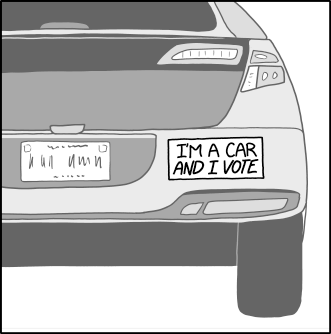The holy day of [??]
From Elijah Granet:
In Trump’s recent remarks on the Squirrel Hill synagogue shooting, he (at ~1:12 in the linked video) refers to the shooting taking place “on the holy day of Sabbath”, pronouncing “Sabbath” in a bizarre way, with the vowels completely off. My best guess—and a few people on Twitter seem to agree— is that the teleprompter actually said “Shabbat”, but Trump was unsure how to pronounce it, and ended up saying “Sabbath”. Still, it seems a bit strange since Shabbat is not a particularly hard word to read phonetically, and given that Trump’s daughter and son-in-law are shomer shabbos, one would think he had heard the word before. It’s equally possible that Trump didn’t know the word “Sabbath” and was trying to give it a “Jewish” pronunciation, and thus over-corrected.
The audio for the phrase "on the holy day of Sabbath":
And just the pronunciation of "Sabbath":
Read the rest of this entry »



